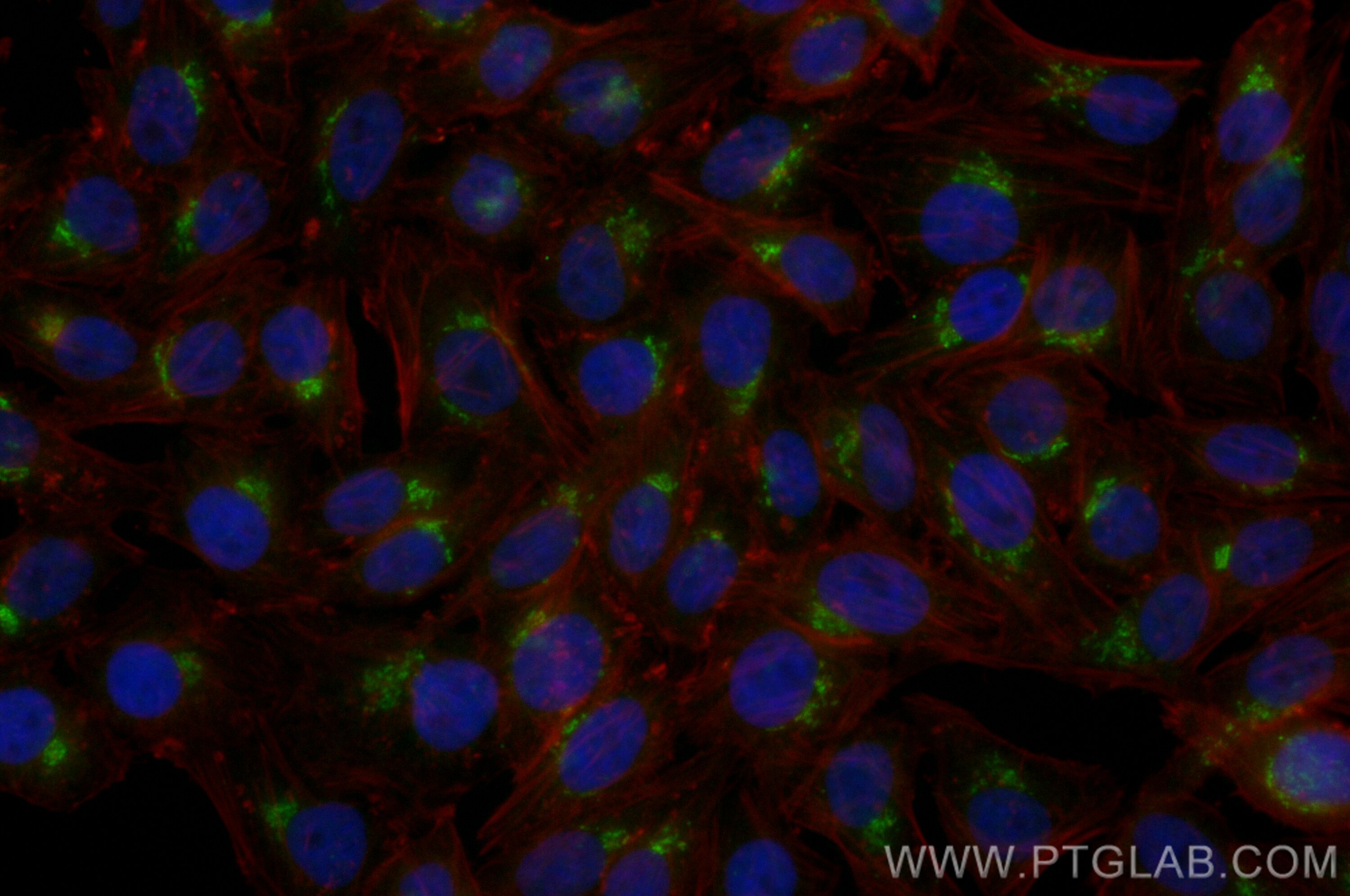Tested Applications
| Positive IF/ICC detected in | HepG2 cells |
Recommended dilution
| Application | Dilution |
|---|---|
| Immunofluorescence (IF)/ICC | IF/ICC : 1:50-1:500 |
| It is recommended that this reagent should be titrated in each testing system to obtain optimal results. | |
| Sample-dependent, Check data in validation data gallery. | |
Product Information
CL488-83146 targets TMEM165 in IF/ICC applications and shows reactivity with human samples.
| Tested Reactivity | human |
| Host / Isotype | Rabbit / IgG |
| Class | Recombinant |
| Type | Antibody |
| Immunogen | TMEM165 fusion protein Ag14362 Predict reactive species |
| Full Name | transmembrane protein 165 |
| Calculated Molecular Weight | 324 aa, 35 kDa |
| GenBank Accession Number | BC003545 |
| Gene Symbol | TMEM165 |
| Gene ID (NCBI) | 55858 |
| RRID | AB_3673201 |
| Conjugate | CoraLite® Plus 488 Fluorescent Dye |
| Excitation/Emission Maxima Wavelengths | 493 nm / 522 nm |
| Form | Liquid |
| Purification Method | Protein A purification |
| UNIPROT ID | Q9HC07 |
| Storage Buffer | PBS with 50% Glycerol, 0.05% Proclin300, 0.5% BSA, pH 7.3. |
| Storage Conditions | Store at -20°C. Avoid exposure to light. Stable for one year after shipment. Aliquoting is unnecessary for -20oC storage. |
Background Information
Thiopurine methyltransferase or thiopurine S-methyltransferase (TPMT), a member of methyltransferase superfamily, is an enzyme involved in the normal metabolic inactivation of thiopurine drugs such as azathioprine, 6-mercaptopurine and 6-thioguanine. These drugs are generally used as immunosupressants or cytotoxic drugs and are prescribed for a variety of clinical conditions including leukemia, autoimmune disease and organ transplantation. Defects in the TPMT gene leads to decreased methylation and decreased inactivation of 6MP leading to enhanced bone marrow toxicity which may cause myelosuppression, anemia, bleeding tendency, leukopenia and infection.
Protocols
| Product Specific Protocols | |
|---|---|
| IF protocol for CL Plus 488 TMEM165 antibody CL488-83146 | Download protocol |
| Standard Protocols | |
|---|---|
| Click here to view our Standard Protocols |



